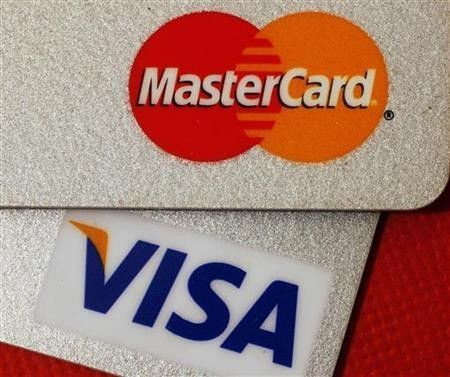MasterCard facing £19B class action suit over inflated processing fees

MasterCard could pay £19 billion (AU$33 billion) in damages for allegedly setting unlawfully high interchange fees for 16 years. A class action suit in the UK against the financial services giant could see millions of British consumers collecting more than £450 (AU$780) each.
According to the claim, the interchange fees, imposed by MasterCard on retailers for processing credit and debit card payments, were passed on to its shoppers in the form of inflated prices for goods and services for over 16 years.
As consumers, regardless if they were MasterCard users or not, bore the added charges, they are automatically included in the legal case unless they choose to withdraw. This could mean that 40 million Britons would be entitled to a share of around £450 per person.
Former financial services ombudsman Walter Merricks is leading the class action suit, citing the new Consumer Rights Act 2015.
“The prices of everything we all bought from 1992 to 2008 were higher than they should have been as a result of the unlawful conduct of MasterCard,” Werricks said in a statement. “To be clear, there is no question that MasterCard acted illegally in the way it conducted its business, a business that affects all of us. All of us overpaid to the tune of up to £19 billion during a period lasting 16 years.”
Werricks has instructed US-based law firm Quinn Emanuel to lead the case, with litigation funder Gerchen Keller Capital providing up to £40 million (AU$69.3 million) to finance the suit, according to FT.com.
MasterCard’s fees have already been ruled in violation of the EU antitrust rules by the European Court of Justice in 2014. The EU had adopted the interchange fee regulation, imposing caps of 0.2 percent for debit cards and 0.3 percent for credit cards. This came into effect on Dec. 9, 2015.
The class action lawsuit claims that as MasterCard’s fees have already been found illegal, it only needs to prove that consumers suffered loss because of the company’s anti-competitive behaviour. Individual consumers aren’t likely to file their own suit against MasterCard as the payment is only expected to be hundreds of pounds. However, by making the lawsuit a collective claim, all UK consumers affected would be included.
MasterCard “firmly disagrees” with the lawsuit’s basis. “Electronic payments deliver real value to people online, in-store and everywhere,” it said in a statement. “MasterCard is committed to providing ever more convenient, safe and secure payments to all our customers, including consumers, retailers, governments and banks.”





















